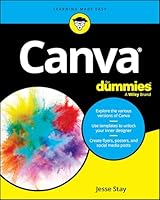
Digital Fonts and Reading
- Length: 292 pages
- Edition: 1
- Language: English
- Publisher: World Scientific Publishing Co
- Publication Date: 2016-04-28
- ISBN-10: 9814759538
- ISBN-13: 9789814759533
- Sales Rank: #7088455 (See Top 100 Books)
The book is a collection of invited chapters by renowned experts and is part of a series on Language Processing, Pattern Recognition, and Intelligent Systems. The content is wide-ranging, encompassing perspectives from computer science to social science to design and reflecting the considerable experience of researchers, teachers and practitioners. This diversity offers rigorous approaches to the topic of Digital fonts and reading, organised in four sections: vision and reading; scientific approaches to reading; perspectives on type design practice; and using type. The heavily illustrated text includes original research, case studies, reviews, and practical advice, serving as a useful handbook or reference to inform design for reading. Traditionally, there has been a separation between researchers and practitioners, with different agendas. This book bridges the gap between scientific testing and design experience and considers the reader’s perspective. The collection aims to resonate with academics and students, experienced or novice typographic or interface designers and software engineers, and engage with anyone who has an interest in type and reading.
Readership: Design practitioners and software engineers.
Table of Contents
Chapter 1 The Effect Of Type Design And Typesetting On Visually Impaired Readers • Eleni Beveratou
Chapter 2 Matilda: A Typeface For Children With Low Vision • Ann Bessemans
Chapter 3 Sitka: A Collaboration Between Type Design And Science • Kevin Larson And Matthew Carter
Chapter 4 Eye Movements: From Psycholinguistics To Font Design • Timothy J. Slattery
Chapter 5 Designing Legible Fonts For Distance Reading • Sofie Beier
Chapter 6 Effects Of Interword Spacing On Chinese Children’S Reading Abilities • Hsiu-Feng Wang
Chapter 7 Elements Of Chinese Typeface Design • Xiaoqing Lu And Ting Tang
Chapter 8 Optimizing Type For Use In Specific Media • Eben Sorkin
Chapter 9 ‘Harmonised Type Design’ Revisited • Titus Nemeth
Chapter 10 Using Pattern Languages In Typographic Design • Rob Mckaughan
Chapter 11 How Does Expertise Contribute To The Recognition Of Latin And Chinese Characters? • Mary C. Dyson, Keith Tam, Clare Leake, Brian Kwok
Chapter 12 Newspaper Text • Lucie Lacava
Chapter 13 Perception Of Fonts: Perceived Personality Traits And Appropriate Uses • Dawn Shaikh And Barbara Chaparro
Chapter 14 Legibility And Readability Of Arabic Fonts On Personal Digital Assistants Pdas • Mrouj Almuhajri And Ching Y. Suen







